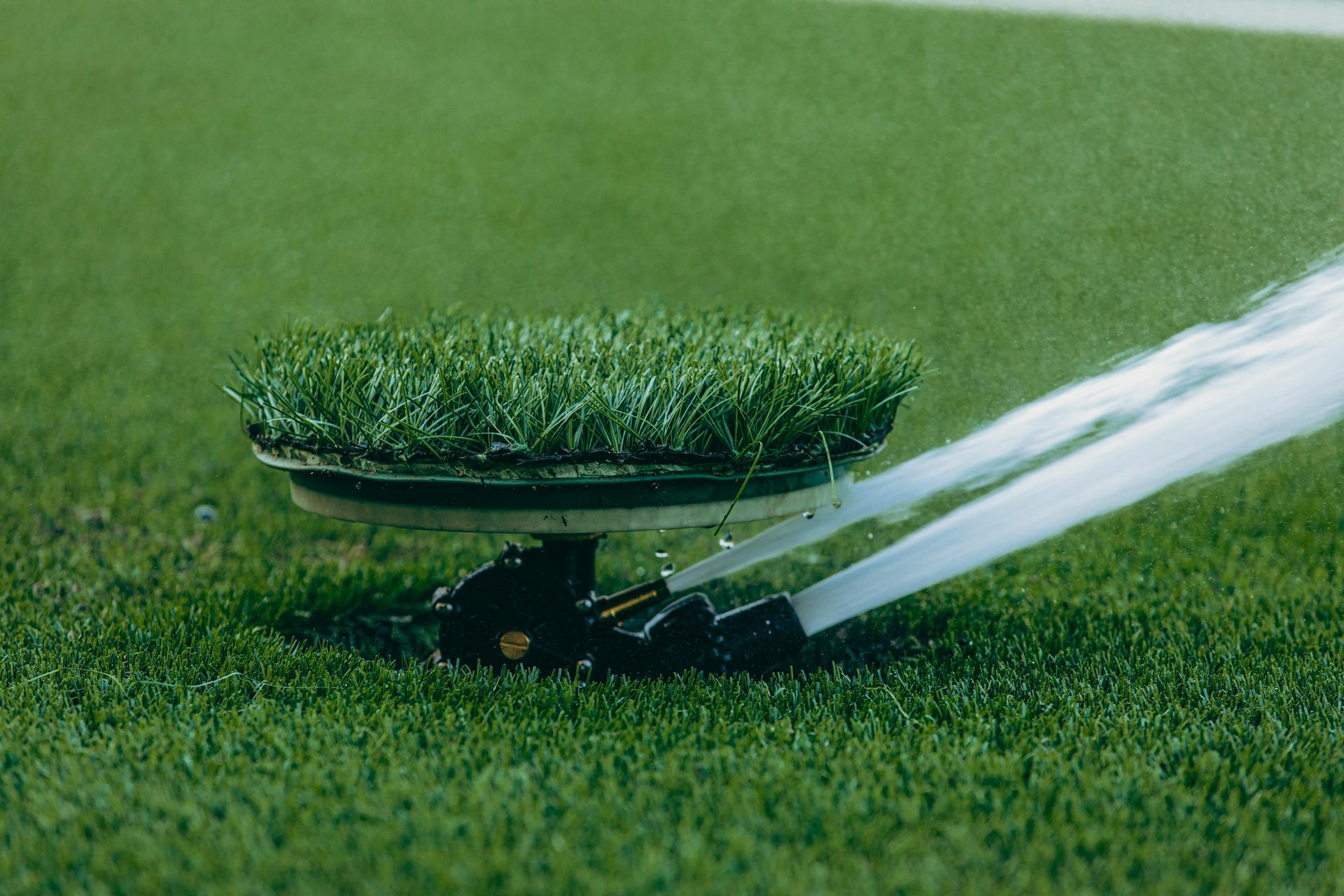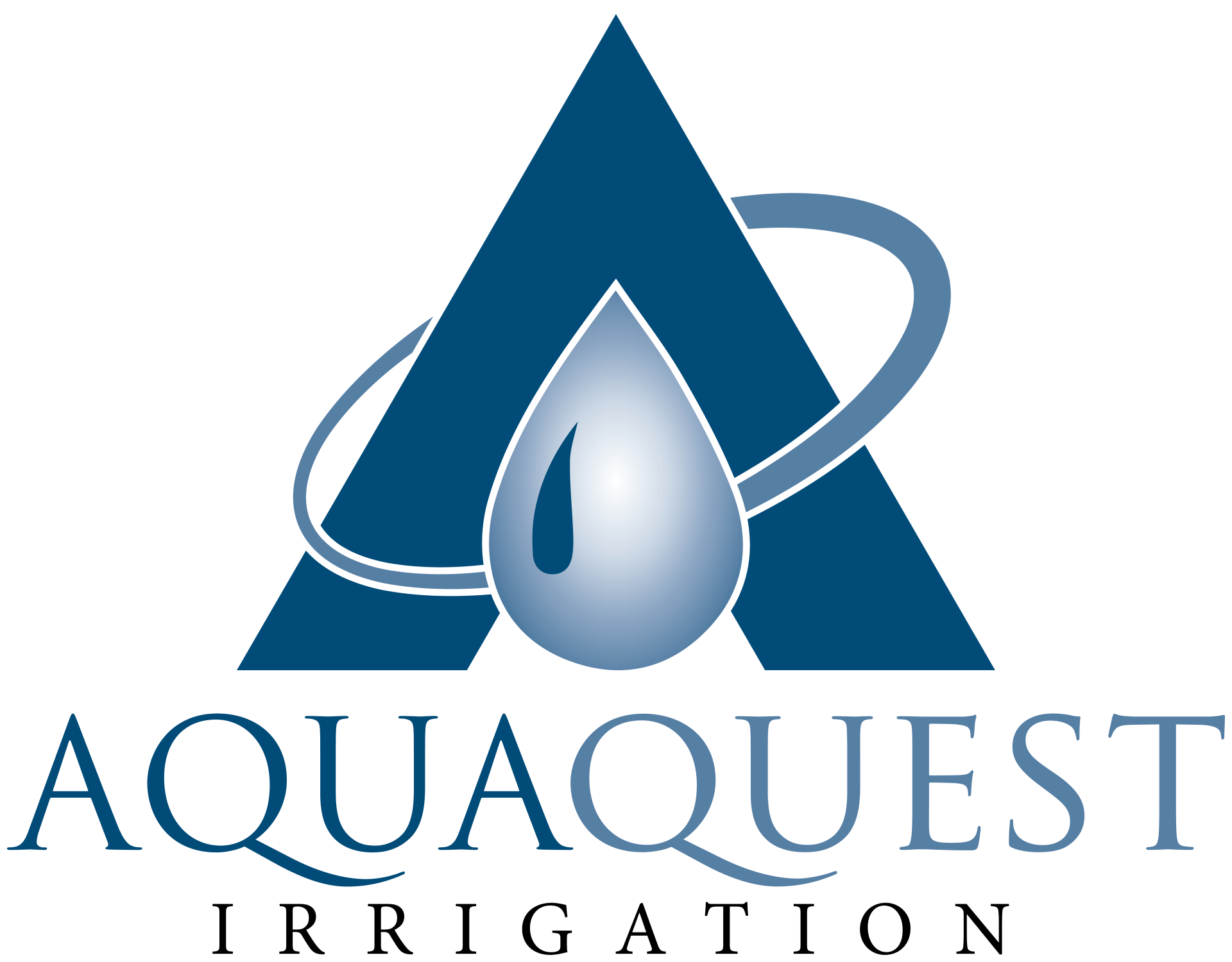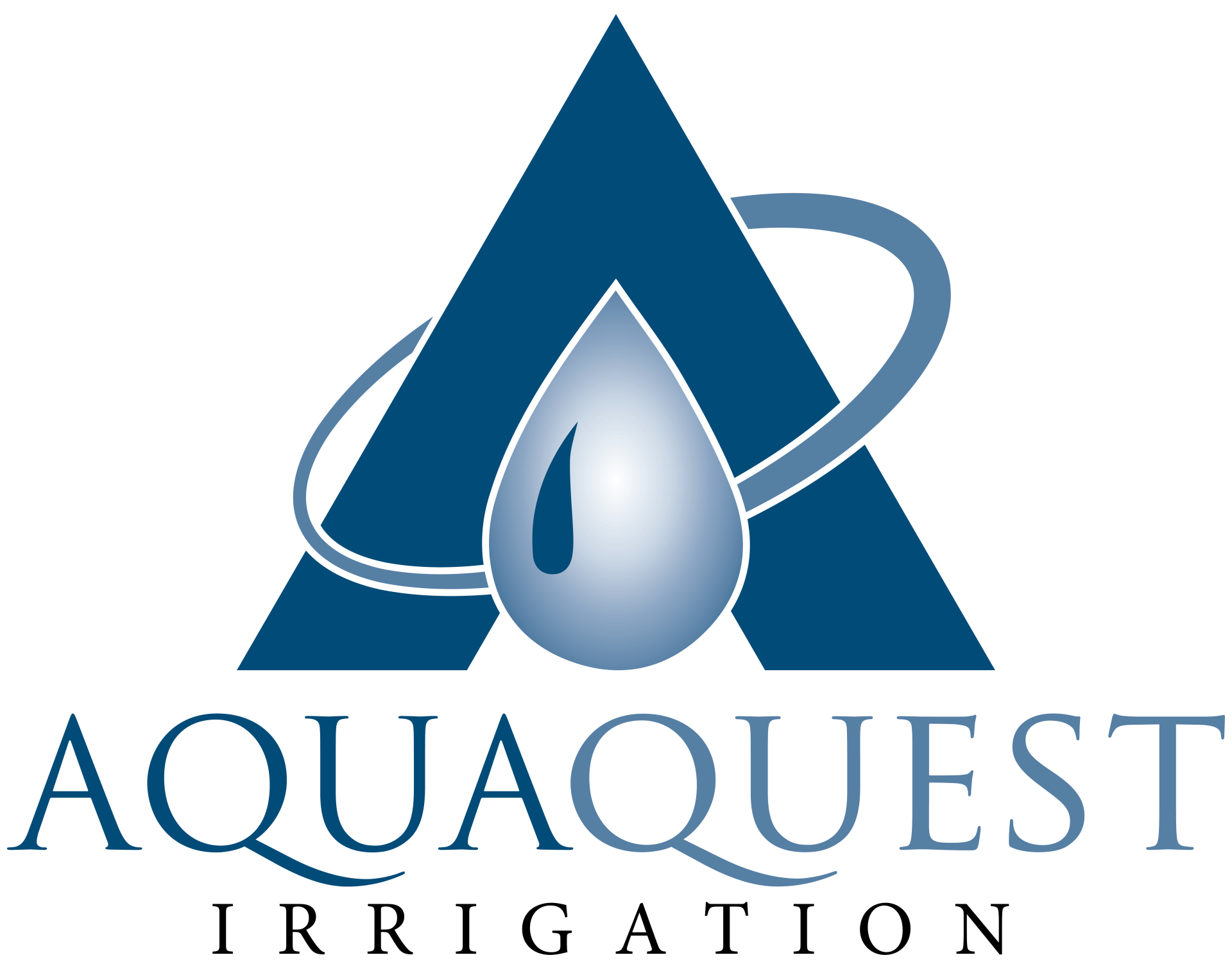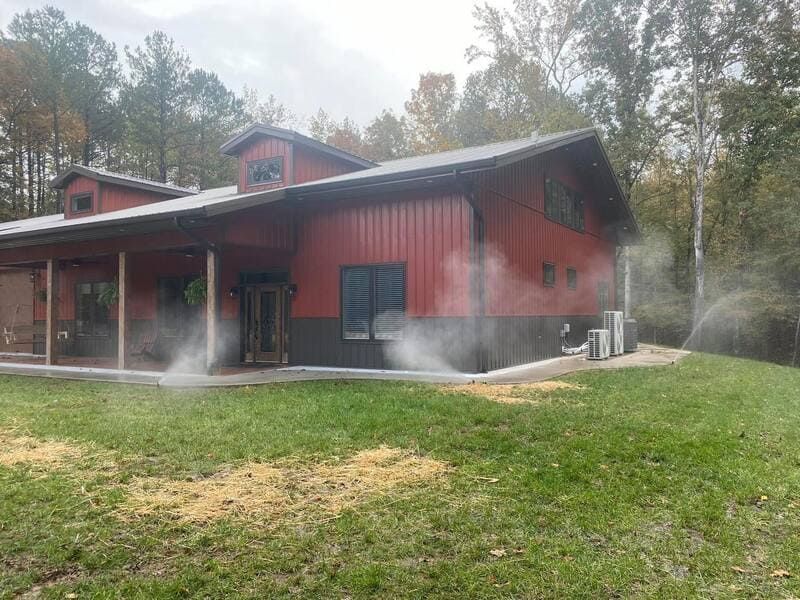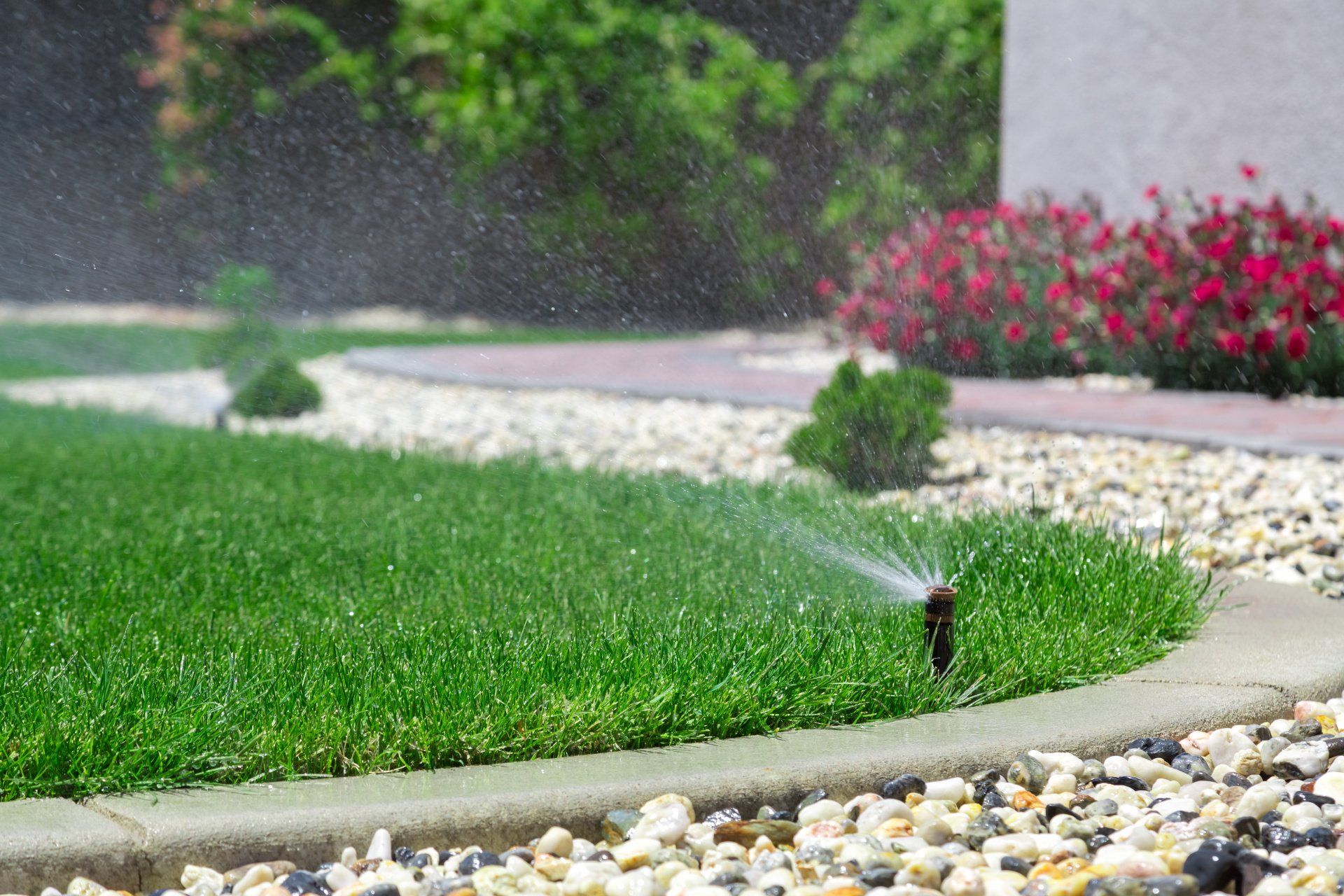How to Prepare Your Lawn & Irrigation System for the First Frost / Freeze (Winter)
When the first frost hits Tennessee, your lawn and irrigation system feel the impact long before you do. Without proper preparation, you risk cracked pipes, broken sprinkler heads, and expensive
irrigation repairs
come spring. The good news? With a little proactive care, you can protect your lawn and landscape - and your wallet!
This guide walks you through the preparation of your lawn for winter and answers the common question: “How do you prepare your lawn for winter?” Whether you’re a homeowner in Knoxville or a property manager in Nashville, here’s how to get your systems ready before freezing weather hits Tennessee.
How The First Frost Affects Your Irrigation
Tennessee’s first frost typically arrives between late October and mid-November, depending on where you live.
- Knoxville / East TN: October 21–31
- Central TN towns (Nashville, Murfreesboro, etc.): November 1–10
- West TN (Memphis region): November 10–20
Don’t wait until the local freeze warning is issued. Begin irrigation winterization 1–3 weeks before your average first frost to avoid costly system damage. Following this timeline will ensure you’ll have your system drained and protected before freezing nights become the norm.
Why Preparing for the First Frost Matters in Tennessee
Cold weather doesn’t just brown your grass—it can damage your property. Skipping winter lawn care and irrigation prep can lead to:
- Cracked irrigation lines from expanding ice
- Dead grass patches due to frozen, waterlogged soil
- Damaged backflow preventers and valves
- Higher repair costs in spring due to damage from the freezing temps
A few preventative steps now will cost you far less than emergency repairs later.
The 3 Safe Ways to Winterize Your Irrigation System
There are three main ways to drain your irrigation system. The right choice depends on your system design and property size.
- Manual Drains – Best for simple, small systems. Requires opening valves manually to release water.
- Automatic Drains – Built-in systems that drain when water pressure drops. Convenient but not foolproof.
- Blow-Out with Air Compressor – The most thorough option. Recommended for most Tennessee systems, especially larger or commercial setups.
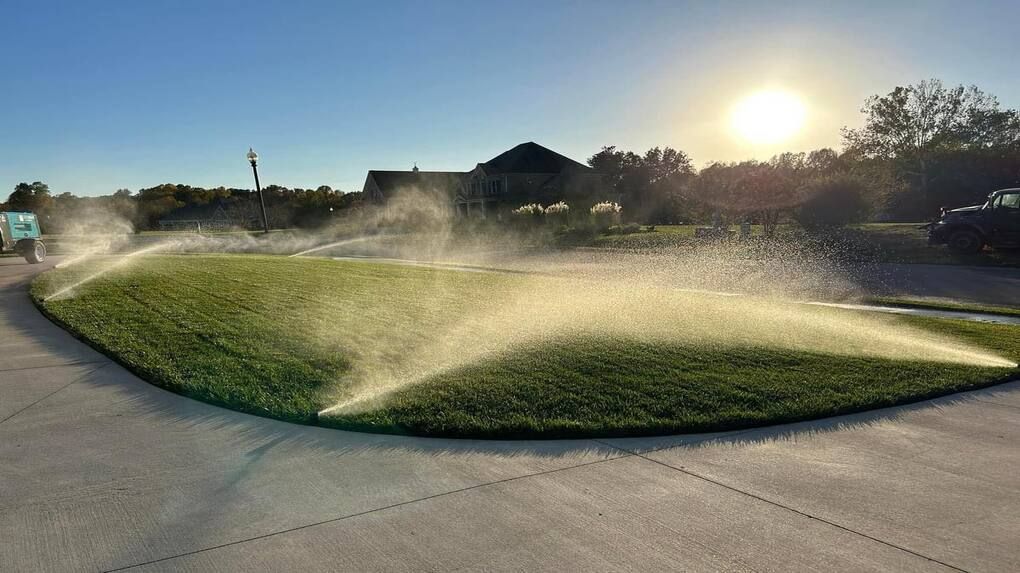
Blow-Out Method: Step-by-Step
If you’re wondering how to prepare your lawn for winter while protecting your irrigation, the blow-out method is key. Here’s how to do it safely:
- Shut off the main water supply to your irrigation system.
- Attach an air compressor using an adaptor and ensure you have a regulator and pressure gauge.
- Use correct pressure:
- Polyethylene pipe: Max
50 PSI
- PVC pipe: Max
80 PSI
- Safe practical range for TN systems:
40–50 PSI
- CFM matters more than PSI: Rent a compressor with 30–50+ CFM for best results. Small portable compressors won’t cut it.
- Blow out zone by zone, starting with the farthest. Run each 2–5 minutes until only air exits.
- Repeat if necessary, as air can “ride over” water pockets.
- Shut everything down: Close valves, protect backflow preventers with insulated covers, and turn your controller off.
⚠️
Safety note: Always wear eye protection and follow manufacturer PSI limits. Never use tiny 12V tire inflators—they don’t have the volume and can damage your system.
Insulate & Protect Exposed Components
Even if you’ve drained your lines, exposed parts need protection:
- Backflow preventers – Wrap with an insulated cover or backflow blanket.
- Above-ground pipes & spigots – Use foam pipe covers and insulating tape.
- Valves & hose bibs – Cover with weatherproof protectors.
These simple steps prevent thousands of dollars in potential freeze damage.
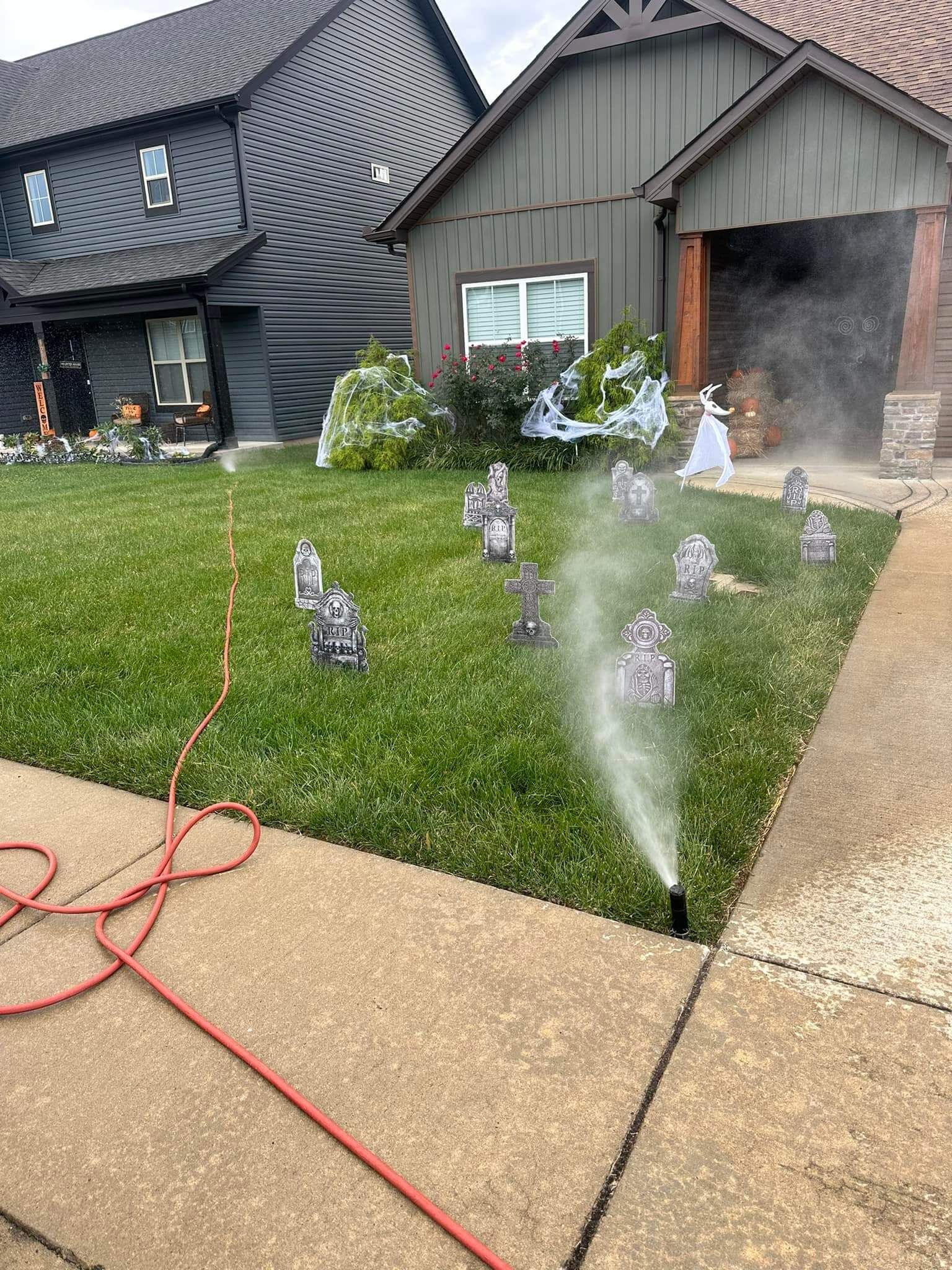
Controller & Smart System Prep
Don’t forget about the brain of your irrigation system—your controller.
- Set your system to
“off” or “rain delay.”
- Remove batteries if the controller isn’t in a heated space.
- For smart systems, enable
freeze or winter modes.
This prevents accidental watering during freezing conditions.
When to Call a Professional for Irrigation Winterization
DIY is possible, but you should call a pro if:
- You own a
complex irrigation system with multiple zones.
- Your property is
commercial or large-scale.
- You lack the right equipment (air compressor with proper CFM).
Professionals ensure all water is cleared—saving you from costly spring repairs.
Contact
AquaQuest Irrigation for
local
irrigation services and professional winterization across Tennessee.
Tools, Materials & Estimated Costs
Here’s what you’ll need—and what it might cost:
- Air compressor with regulator/gauge:
$50–$150/day rental
- Foam pipe covers & backflow blankets:
$10–$75
- Basic tools (wrenches, adaptors, hose bib covers)
- Professional winterization:
$80–$300, depending on property size
(All prices are estimates and may vary locally and based on the system.)
What Happens If I Don’t Winterize?
Ignoring irrigation winterization can lead to:
- Burst pipes → thousands in repair costs
- Dead or patchy grass in spring
- Water waste and higher water bills from damaged components
- Backflow system failure, risking contamination
In short, prevention saves time, money, and hassle.
Conclusion
Preparing your lawn for winter and protecting your irrigation system is essential for Tennessee homeowners and property managers.
To recap:
- Drain your irrigation system (manual, automatic, or blow-out).
- Insulate exposed pipes and backflow preventers.
- Adjust controllers and sensors.
- Protect your lawn with proper mowing and fertilizer.
- Call professionals when in doubt.
Schedule your irrigation winterization today with AquaQuest Irrigation and get peace of mind before Tennessee’s first frost.
You might also like
